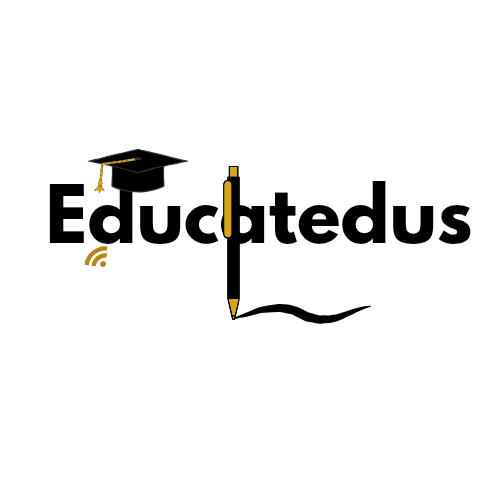Why Students Fail Examinations in Universities and Colleges: A Comprehensive Analysis. Learn about internal and external factors affecting academic performance, plus proven strategies to improve study habits and exam success rates.

Have you ever wondered why most students fail in school? Do you think some of them deliberately fail? The reality is that no student has ever planned or willingly chosen to fail. In the academic sector, failure often leads to increased mental and psychological problems globally, making this topic crucial for educational success.
In educational institutions, students are expected to take tests and examinations to pass all subjects or core courses to advance to the next level and demonstrate their intellectual capabilities. However, most students struggle to meet these requirements due to various factors and inadequate preparation.

The truth is simple: nobody plans to fail. In colleges and universities, students constantly strive to achieve good grades. Despite tremendous efforts, obtaining passing grades can be challenging and discouraging. The critical question remains: what exactly causes student failure?
Read Also: What To Do The Night Before An exam: A Complete Guide
Primary Factors Leading to Student Failure in Educational Institutions
Student failure results from multiple interconnected factors that can be categorized into internal and external influences. Understanding these factors is essential for developing effective strategies to improve academic performance.
Internal Factors: Personal and Self-Discipline Related Issues
Internal factors relate to individual discipline, motivation, and personal approach toward learning. These factors significantly impact academic success and include:
1. Inadequate Preparation and Study Habits
When students consistently delay or postpone essential reading and study sessions, they create a pattern of insufficient preparation.

This procrastination leads to cramming before examinations, resulting in poor understanding and retention of study material. Effective time management and consistent study schedules are crucial for academic success.
2. Laziness and Lackadaisical Attitude Toward Studies
A lazy and indifferent attitude keeps students from making necessary efforts for learning and understanding concepts they will be tested on. These students often expect others to complete their assignments and provide answers during tests, rather than developing their own knowledge and skills.
3. Lack of Focus and Concentration
In today’s digital age, where smartphones and technology are essential, concentrating on studies without distractions has become increasingly difficult. With 24/7 internet access, social media engagement, and endless video games, students struggle to find dedicated study time. This inability to focus on academic material significantly contributes to poor performance.
4. Poor Time Management Skills
Time management is crucial for academic success, as time once lost cannot be recovered. Non-academic distractions consume most students’ valuable study time. Students often fail to utilize time effectively due to procrastination and inability to prioritize academic commitments over entertainment and social activities.
5. Lack of Perseverance and Ambition
Students who give up easily when facing academic difficulties often underperform. Successful students view challenges as opportunities for growth and work persistently to overcome obstacles. Building resilience and maintaining long-term academic goals are essential for sustained success.
6. Negative Attitude and Pessimistic Mindset
Maintaining a pessimistic view toward academic challenges proves harmful to student success. When students become discouraged after minor setbacks, they develop negative attitudes that affect all aspects of their educational journey. This demotivation leads to poor study habits and eventual academic failure.
7. Lack of Self-Confidence
Excessive internet and social media use can make students introverted, leading to low self-esteem and lack of confidence. These students doubt their capabilities and refuse help from teachers and peers, creating barriers to academic improvement and success.
8. Overconfidence and Complacency
Conversely, excessive self-confidence can also damage academic performance. Students who overestimate their abilities may not study adequately, believing they already know enough to pass examinations without proper preparation.
9. Insufficient Critical Thinking and Analytical Skills
Higher education curricula and examinations require students to demonstrate critical thinking and logical reasoning abilities. Students lacking these intellectual and analytical skills often struggle to perform well in college and university-level coursework.
10. Fear of Failure
When students develop persistent thoughts about potential failure, they become anxious and scared, leading to poor examination performance. This psychological barrier creates a self-fulfilling prophecy that undermines academic success.
11. Careless and Indifferent Mindset
Some students fail due to carelessness and lack of regard for their education. They don’t recognize the importance of their studies and may believe education adds no value to their lives, leading to poor academic outcomes.
External Factors Affecting Student Learning
External factors beyond individual control also significantly impact academic performance:
1. Inadequate Infrastructure and Learning Environment
Many educational institutions lack proper infrastructure and conducive learning environments. Poor facilities, inadequate libraries, outdated equipment, and uncomfortable classrooms can hinder effective learning and student performance.
2. Poor Teaching Methods and Instructor Quality
Ineffective teaching methods by lecturers and teachers significantly impact student understanding and retention. When educators fail to engage students or explain concepts clearly, academic performance suffers regardless of student effort.
3. Social Distractions and Peer Pressure
Social environments and peer influences can negatively impact academic focus. Students may prioritize social activities over studies or feel pressured to conform to group behaviors that don’t support academic excellence.
4. Academic Corruption and Unethical Practices
When lecturers engage in corrupt practices such as accepting bribes or showing favoritism, it undermines the educational system. This corruption makes students lazy and reduces their motivation to study hard, knowing that success might depend on factors other than merit.
Strategies for Academic Improvement
Students seeking to improve their academic performance should focus on developing the opposite characteristics of the failure factors mentioned above. This includes establishing consistent study routines, improving time management skills, developing critical thinking abilities, and maintaining positive attitudes toward learning challenges.
Frequently Asked Questions (FAQ)
1. What are the main reasons students fail university examinations?
Students fail university examinations primarily due to inadequate preparation, poor time management, lack of focus, negative attitudes, and insufficient critical thinking skills. External factors like poor teaching methods and inadequate infrastructure also contribute to academic failure.
2. How can students overcome procrastination and improve study habits?
Students can overcome procrastination by creating structured study schedules, breaking large tasks into smaller manageable portions, eliminating distractions, setting specific goals, and developing consistent daily study routines. Using time management techniques and accountability systems also helps improve study habits.
3. What role does technology play in student academic failure?
While technology offers educational benefits, excessive use of social media, video games, and entertainment platforms creates significant distractions. Students struggle to focus on studies when constantly connected to digital devices, leading to poor time management and inadequate preparation for examinations.
4. How does lack of confidence affect student academic performance?
Lack of confidence prevents students from asking questions, seeking help from teachers, participating in class discussions, and taking academic risks necessary for learning. This psychological barrier limits their ability to fully engage with educational material and demonstrate their knowledge during examinations.
5. What can educational institutions do to reduce student failure rates?
Educational institutions can reduce failure rates by improving teaching methods, providing better infrastructure, creating supportive learning environments, offering academic counseling services, implementing effective assessment strategies, and addressing corruption within the system. Additionally, institutions should provide resources for student mental health and academic support services.
References:
- The Power of Self Confidence by Brian Tracy
- Youniverstytv.com


